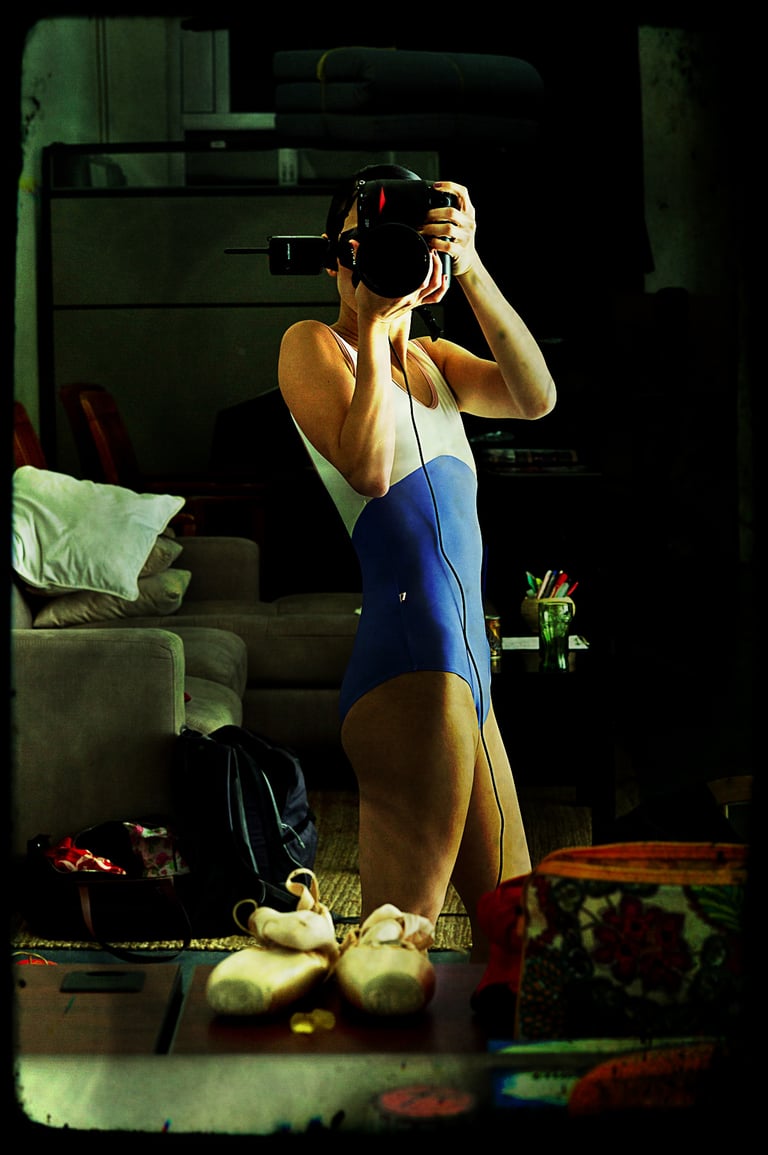The Socials
Reflecting on the Evolution of Digital Communication: From ICQ to Instagram
5/30/20244 min read


I learned this past week that ICQ, one of the OG messaging apps from the late 90s and early 2000s, will cease operations on June 26, 2024. Growing up in Hong Kong, ICQ was the cool kid on the block, trumping AIM any day. Using the messenger app was a test of patience. During the era of dial-up, you prayed that the servers were available and snuck in a session when no one was using the landline. Ah, the joys of shared desktop computers—our prized possessions.
Unlike some of my friends, I don’t remember my ICQ number, but I do remember the countless times I had to recreate new accounts because I forgot my passwords. Password amnesia was real. My friends saved me by sending their contact lists as we navigated through our shared network of mutual friends, who were mainly people in our grade. Funny enough, I met my childhood boyfriend through ICQ, as he shared the same name as a classmate. The thrill of the “uh-oh” notifications and the giddiness of receiving a juicy piece of gossip were unparalleled. It was an exhilarating new way to communicate. This was also when Nokia phones were all the rage, and we lived in fear of the impending Y2K apocalypse that never happened. The “uh-ohs” kept flooding in as the clock struck midnight, ushering us into a new millennium.
Connecting to a server was a time-consuming ordeal, and with devices not as portable, face-to-face conversations still reigned supreme. This was the golden era when technology and human connection found a sweet spot.
Fast forward four years to the summer before my first year of college. My friends were buzzing about this new thing called “Facebook.” However, it was exclusive to a small pool of universities, and UC Irvine wasn’t on the list, so those with access held a certain status. We received a book with information about all the incoming first-year students, including photos and short bios. By the time I started college, Facebook had finally expanded to UC Irvine, and the fun began. It was a place to read people’s statuses—raw, unfiltered, and often hilarious. It was light-hearted, and you felt a genuine connection. It helped me reconnect with friends from Chinese International School, which I had left in Y9.
If you went clubbing over the weekend, you'd upload entire albums of photos from your digital camera or early iPhone, complete with captions and tags. I distinctly remember staying on the first floor of the Niebla dorms in Mesa Court. The guys from the third floor would lower an ethernet cable from their window to our rooms to share songs (downloaded from Limewire and Napster) and movies. We’d then load them onto our iPods. QWERTY keyboards were still a thing, and flip phones had their moment. Towards the end of the 2000s, Blackberries were the hot new tech. Receiving one in your 20s as you started your career was a big deal—we felt so professional. Technology kept me connected with friends as we forged our own paths. It was a way to share snippets of our lives so that when we finally hung out in person, we had plenty to chat about. Accessing music through Napster, Limewire, or Apple Music, curating intentional content on MySpace or Facebook albums, and writing respectful, grammatically correct emails was the norm. YouTube was starting to trend during this period. Graduating with a smartphone and resources to boost productivity felt like a huge advantage. Growing up, research meant navigating libraries and encyclopedias.
Then came Instagram in my late 20s and early 30s. I loved the concept of posting artistic content—photos of roads, cafés, or architecture with a filter and a simple caption. It was a platform for artists. I started a public account mainly for work after a friend suggested it, saying, “Your photos need to go somewhere. You should consider Instagram.” I posted my first photo on February 4, 2016—one of the scariest moments of my life, as I had no idea what I was getting into. When IG started, AI wasn’t as prevalent. The algorithm was less biased, and content wasn’t solely driven by it. The platform opened my eyes to endless artistic possibilities. Consuming curated content was a joy, sparking interesting conversations. I made many IG-turned-real-life friends through the platform and am forever grateful for these connections.
Then came stories, modeled after Snapchat. Snap never stuck with me—it felt a bit intrusive. Stories were fun initially, offering a glimpse into someone’s daily life in real time. Unfiltered moments were acceptable to an extent, but most were unintentional. Instagram evolved from a place of creation to one of consumption—over-consumption.
I started noticing a growing disconnect. As an introvert who is extroverted by profession, I saw people stop striking up real-life conversations because they already knew about each other’s day from social media.
When Instagram introduced reels, encouraging paid partnerships and influencer culture, I was done. The platform, fueled by COVID, the economy, and the need to chase superficial goals over integrity, lost its appeal for me as an artist. It was no longer a place for genuine, authentic sharing. It was about chasing the likes, paying for validation, and do I dare include an era of "pick-me" personalities? The algorithm was pushing content by pre-professional dancers offering career advice and influencers showcasing a distorted reality made it worse. The industry’s toxicity and social media's distortion of reality were creating a disconnect from everything and everyone. Yes, please educate this granny.
Let's flip the script a bit. Are you seriously basing your life’s purpose and standards on an AI algorithm, edited content, and probably sponsored posts? Or judging someone’s talent and abilities by followers and likes rather than credentials and experience? Let that sink in for a moment. Remember all those years of schooling and hard work—are you really going to let a platform dictate your choices? Think about that.
Every technological advancement has its positives, but I’m exhausted arguing with people about industry specifics that only experienced professionals understand. True professionals with credentials validated by legitimate organizations. Why argue over these minute issues? I no longer bother. There isn’t a space for open discussion when people chase after a narrow idea driven by algorithms without self-reflection.
So where does this leave us? Drawing boundaries with technology. Defining its purpose and how it can facilitate rather than direct my work. Living with integrity both online and offline. Treasuring moments with those who appreciate me and discovering new experiences. Being present and exercising the art of communication and comprehension. Life is meant to be lived in the flesh, not behind a screen. Unlike AI and technology, the only certainty is our mortality.
I invite you to do the same.
S.
